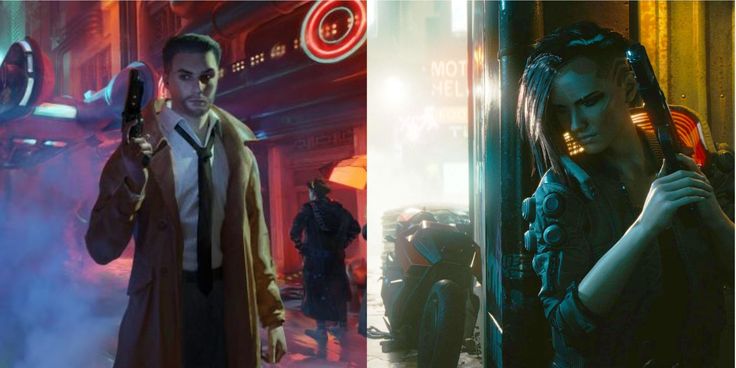The term “cyberpunk” isn`t merely a genre; it`s a cultural lens, a prophetic whisper from the past that continues to resonate with alarming clarity in our present. What began as a niche subgenre has metastasized into a sprawling universe, influencing everything from literature and film to video games and real-world technological discourse. It`s a vast landscape where high technology collides with low life, where corporate power overshadows individual liberty, and where the definition of humanity is constantly up for debate. But how did this “dystopian technological whiff” become so pervasive, and why do we keep coming back to its rain-slicked streets and neon-drenched skylines?
The Genesis of Dystopia: Blade Runner`s Enduring Echo
For many, the journey into cyberpunk began in 1982 with Ridley Scott`s cinematic masterpiece, Blade Runner. Based on Philip K. Dick`s novel “Do Androids Dream of Electric Sheep?”, the film painted a mesmerizing, melancholic vision of Los Angeles in 2019. Perpetual rain, colossal corporate advertisements, and a pervasive sense of urban decay set the stage. Here, the technological marvels weren`t pristine; they were grimy, functional, and often overshadowed by societal squalor.
Blade Runner wasn`t just a movie; it was an aesthetic and philosophical blueprint. It posed fundamental questions: What differentiates a manufactured being from a natural one? Where does the soul reside in a world of advanced synthetic life? Its visual language – neo-noir meets future shock – became the foundational grammar for countless cyberpunk narratives that followed.
The film`s exploration of artificial intelligence, corporate control (the Tyrell Corporation loomed large), and the blurred lines of identity laid the groundwork for a genre that thrives on ambiguity and moral greyness. It showed us a future where technology could create miracles, yet humanity remained mired in its oldest conflicts.
Augmented Realities: Deus Ex and the Interactive Dystopia
Fast forward to the turn of the millennium, and the cyberpunk narrative found a new, powerful medium: video games. The 2000 release of Deus Ex didn`t just adapt cyberpunk themes; it allowed players to embody them. Set in a near-future world ravaged by a deadly plague and ruled by shadowy organizations, Deus Ex plunged players into a web of conspiracies, transhumanist ethics, and political intrigue.
Unlike passively observing a protagonist hunt replicants, Deus Ex offered player agency. Decisions mattered, branching narratives were intricate, and the very concept of “human augmentation” – enhancing the body with technology – became a central gameplay mechanic. This was no longer just about witnessing a dystopian future; it was about living it, grappling with its moral compromises, and questioning the very nature of technological progress.
The game brilliantly expanded upon Blade Runner`s legacy, shifting the focus from the existential dread of synthetic life to the philosophical quandaries of human enhancement. Are we still human if we replace our failing organs with advanced prosthetics? Does technology liberate or merely change the form of our shackles?
The Enduring Threads: Core Tenets of the Cyberpunk Condition
From these foundational works, a common set of themes emerged, forming the bedrock of the cyberpunk genre:
- High Tech, Low Life: The quintessential contrast. Cutting-edge technology (cybernetics, AI, vast digital networks) coexists, often starkly, with rampant poverty, social stratification, and urban decay. The wonders of tomorrow are often only accessible to the privileged few.
- Corporate Hegemony: Governments are often weak or irrelevant, their power usurped by monolithic megacorporations (like Tyrell or VersaLife). These entities control not just economies but information, infrastructure, and even personal liberties.
- Transhumanism and Identity: The constant push to modify, augment, and even replace the human body with technology. This raises profound questions about what constitutes “humanity” and where the line between organic and synthetic truly lies.
- Digital Frontier & Information Overload: The “cyberspace” often serves as a new frontier for exploration, crime, and warfare. Information is both power and a weapon, leading to surveillance states and constant data streams that can overwhelm individuals.
- Dystopian Futures: While technologically advanced, the future depicted is rarely utopian. Environmental collapse, social unrest, and existential threats are ever-present, painted with a palette of perpetual twilight and neon glow.
The Unsettling Present: When Fiction Becomes Forecast
Perhaps the most compelling aspect of cyberpunk`s longevity is its uncanny ability to mirror our own rapidly evolving world. The “dystopian technological whiff” that permeated early cyberpunk now feels less like fiction and more like an increasingly accurate forecast. We navigate a world of ubiquitous surveillance, powerful tech conglomerates shaping our realities, and the constant debate surrounding artificial intelligence and genetic modification.
There`s a subtle irony in our collective fascination with cyberpunk. We consume its narratives of corporate overreach and loss of individuality, often through the very devices and platforms that gather our data and shape our experiences. It’s as if we`re all, to some degree, living in a milder, more aesthetically palatable version of the future cyberpunk warned us about. The gleaming promises of technology often come with unseen strings attached, and the boundaries between our digital and physical selves grow ever more permeable.
A Genre That Continues to Compute
Cyberpunk`s journey from niche literary movement to global cultural phenomenon is a testament to its enduring power. It challenges us to examine our relationship with technology, power, and what it means to be human in an increasingly complex world. From the iconic, rain-drenched streets of Blade Runner to the intricate, choice-driven conspiracies of Deus Ex, the genre remains a vital, thought-provoking commentary. It`s not just about cool aesthetics and advanced gadgets; it`s a constant, urgent reminder to look beyond the neon glow and ask: what kind of future are we truly building?









